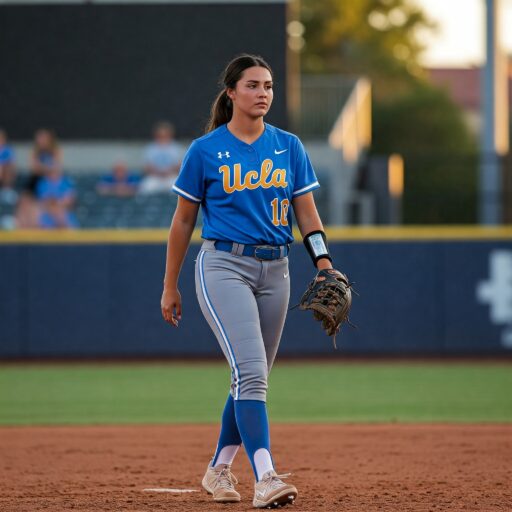The Job
The rain in Niihama-shi came sideways in April. Not hard, but persistent, like it knew you were hoping it’d stop and wanted to disappoint you. That first road trip back from Okinawa, the bus smelled like rosin and wet cleats, and Wesley Carter pressed his forehead to the cool of his window and watched the gray wash over the rice fields.

They’d said he’d be the fifth starter. A lock. Back in Houston, his high school coach gave a two hour interview to the local paper about his expectations for Wesley’s rookie year. Said he hadn’t seen a curveball drop like that since Jesus himself took the mound. But baseball doesn’t cry for you when it moves on. It doesn’t even look back.
 Orlando Ruiz arrived with a duffel full of second-hand gear and manners like a soldier on leave. Twenty-three, quiet, eyes sharp enough to split a seam from fifty feet. His fastball didn’t sizzle – it danced. Not hard, not loud. Just enough. The coaches liked that. They liked him. By mid-May, he was starting. Wesley was shipped down to Namuko for a month before returning… to the pen.
Orlando Ruiz arrived with a duffel full of second-hand gear and manners like a soldier on leave. Twenty-three, quiet, eyes sharp enough to split a seam from fifty feet. His fastball didn’t sizzle – it danced. Not hard, not loud. Just enough. The coaches liked that. They liked him. By mid-May, he was starting. Wesley was shipped down to Namuko for a month before returning… to the pen.
There was no press conference. No handshake. Just a lineup card taped to a clubhouse door that said more than any speech ever could.
Wesley took it like he took most things: with a chuckle just quiet enough to be mistaken for calm.
“Well,” he said to the backup catcher Dave Wilson, “looks like I’m the insurance policy. Hope nobody gets hurt.”
Orlando avoided him at first. Not out of arrogance – far from it. He just didn’t know what to say to a man he’d just displaced.
Wesley, though, made it easy. “You a coffee guy?” he asked one morning, holding out a cup that smelled like diesel and regret.
Orlando nodded, and from then on they drank in silence most days before warm-ups, watching the outfielders stretch like hungover ballet dancers.
They were opposites. Wesley had a grin like a barstool confession and a fastball that hummed with anger. Orlando moved like water. No effort wasted, no emotion spared. Wesley’s glove was stained with pine tar and cleat scars. Orlando’s was clean and precise, like he expected someone to take it away any moment.
The team noticed. Commentators whispered about tension, about how the Texan must be boiling under that easy drawl. But they didn’t see Wesley walking to the mound after a shaky inning to hand Orlando a towel and say, “Come back inside again, he’ll bite this time.” They didn’t hear Orlando say, after Wesley got shelled in a mop-up outing in July, “You pitched better than the scoreboard, Tejas.”
The truth was uglier and quieter than rivalry. Wesley was disappointed. Bitter, even. But he wasn’t built for resentment. He’d grown up in a house with five kids and one bathroom – he knew how to wait his turn, how to let frustration pass through him. And Orlando – Orlando didn’t believe in the idea of a stolen job. To him, baseball was a seat you warmed until someone else came along. He just hoped he could hold it long enough to send money home.
Late one night in August, after a brutal loss, they sat alone in the dugout, empty paper cups at their feet.
“I ever tell you,” Wesley said, “I thought about quitting? Not now. Back in Single-A, Drumright. Just up and vanish. Figured I’d go work for my uncle’s pest control business.”
Orlando looked at him, a slow blink. “You would’ve hated that.”
“Yeah,” Wesley said. “Turns out cockroaches don’t care about curveballs. Plus, I got traded the next day.”
They laughed. Not loud. Just enough.
By September, Orlando was gaining notice around the league. Local Niihama writers floated Wunderkind whispers. When Ruiz went on a tear, giving up just three runs over six starts, Wesley cheered louder than anyone. When Ruiz walked into the dugout after that holding Shin Seiki to one run over 6.1 innings, the first thing he did was find Wesley.
“You helped me,” he said.
“Yeah?” Wesley said, smirking. “Don’t make it weird.”
They never became best friends. That’s not how it works in clubhouses. But something passed between them – a current, a pact. Wesley knew he wasn’t the star. Orlando knew he wasn’t bulletproof. And both of them knew how thin the line was between 200 innings and forgotten.
The Ghosts didn’t dominate that year. The fans came for the giveaways, stayed for the seventh-inning beer. But late in the season, when a rookie looked nervous or a reliever’s confidence cracked, they’d find either Wesley or Orlando by their side, saying little but meaning it.
Late in the season, on the heels of a ten-game win streak during which both Orlando and Wesley pitched their best innings all season, Carter stumbled upon the sobbing mess of a friend. “Florida… Ruiz… what is it?” Orlando handed his friend a handwritten letter. It was in Spanish, but like a good Houstonian, Wesley could manage to read enough of it to get the gist. “I did it. I saved Abuela’s house,” Ruiz choked on the words, awash in a desperate relief. A tear condensed in the corner of Wesley’s eye, and for the first time in memory, he let it grow and fall, undisturbed.
“Let’s get a coffee.”



